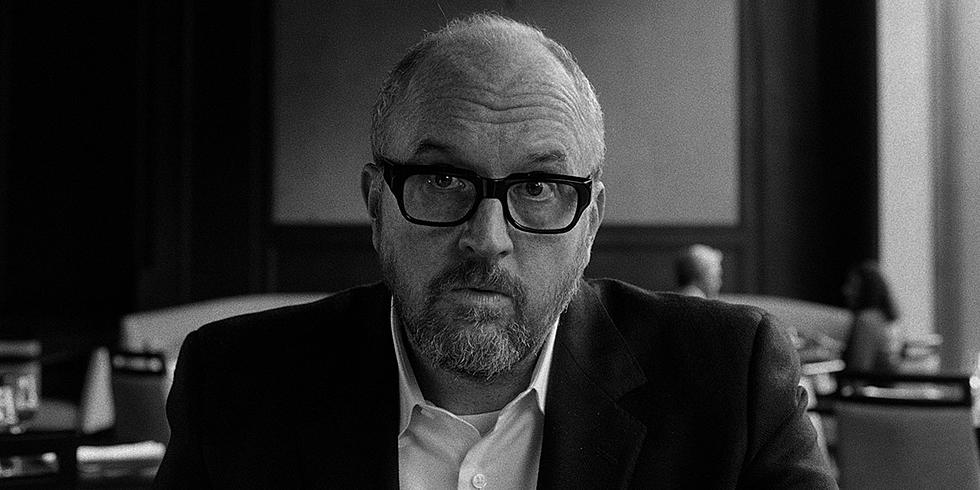
Reel Women: Is Chloe Grace Moretz Growing Up Too Fast?
In this week's Reel Women we discuss something that people often shy away from: the sexualization of young actresses. In Tim Burton's latest film, 'Dark Shadows,' Chloe Grace Moretz plays a pretentious, grating teen with all the sexual emphasis of the film's co-stars -- women who are more than twice her age.
Does Hollywood have a problem? Or are we the problem?
It's not a new conceit. Teen girls wear make-up and dress in provocative or more adult clothing -- it's a healthy exploration of identity and it's how we reconcile our self image with how our bodies and lives are changing. Girls of that age aren't quite children, but they are't quite women yet, either; they are suspended between two extremes, in a place best and most beautifully illuminated in Sofia Coppola's 'The Virgin Suicides.'
And women, regardless of age, have the right to choose how to present and conduct themselves. We wouldn't say that Angelina Jolie or Scarlett Johansson shouldn't wear that dress or put on that make-up. We don't condemn the sexualization of grown women -- or men, for that matter. It's part of celebrity: movie stars are beautiful and we want to see that beauty accentuated in the most aesthetically pleasing manner, at all times. It's why Charlize Theron is nominated for an Oscar when she goes "ugly" for 'Monster.' It's why we think an actor's performance is better when they put on a few pounds or ditch the make-up. We think it's so brave.
But a young woman like 15-year-old Moretz is sexualized and it brings to mind nebulous ideas of propriety. We no longer live in a society where marrying a 13-year-old is de rigueur (thank goodness), and we've established laws that clearly define sex with a minor -- regardless of consent -- as illegal. We don't believe that young people are capable of making these decisions for themselves (though they can, and do), but it's these very laws and taboos that make the attractive qualities of a young actress like Moretz more appealing. Where do we draw the line when it's so difficult to see?
When people say that Moretz is being sexualized, it's a loaded judgment that implies victimization, which denotes that Moretz is too naive, too ill-equipped, and not intelligent or competent enough to make her own choices, as if there is something being done to her and she is not an active participant in her own life choices.
There's an inherent desire to protect young women, and that desire is -- unintentionally -- sexist. Sexism isn't always blatant or conscious; in fact, most sexism springs from subconscious places, revealing itself in our best intentions. We want to protect someone like Chloe Grace Moretz from... what? Herself? She chooses her roles and her parents are involved in her career, which seems appropriate for someone of her age. If anyone should be trying to guide her decisions, it's her parents; it is not our job to dictate what is best for a child that isn't our own. If someone in the audience perceives Moretz as overtly sexual, that's their opinion. We are all responsible for our own perceptions and the way we process wrong, right, and the many shades of grey between (hint: there are more than 50, like that terrible book suggests, but more on that next week).
What we should ask ourselves is why we aren't scrambling to protect young men. Justin Bieber sings about love and relationships, courting his fans through his lyrics and enticing women of all ages to engage in escapist fantasies of running off with a teenage heartthrob. Magazines like Bop and Tiger Beat have existed for decades, providing young women with posters they can pull out and hang on their wall, featuring teenage actors and musicians -- all dreamy eyes and smiles, sometimes sans shirt, and we're okay with this. We're okay with a young man's sexuality because "boys will be boys," but we are duplicitous and call those same young men predatory and believe we need to protect young women from them.
But we're really just trying to protect young women from themselves at a time when they need to start making their own decisions. We don't protect the young men because we believe they can protect themselves, but we think a young woman is too weak, too sensitive, and too naive to know what's best for her own life -- which only further diminishes her personage and limits her ability to learn because you can't learn without making a few mistakes.
Studios and directors are understandably cognizant of the physical appeal of young talent, and they capitalize on that and pander to the audience. These young actors are being groomed for a beautiful future, and rightfully so. Would we feel differently if she were less attractive, but still being sexualized? It's a startling notion to consider in relation to someone we would -- for all intents and purposes -- consider a child. How can we discuss the beauty of someone so young at an age where self image is so delicate? If she were less attractive, it's possible she wouldn't be sexualized and would have the career of Heather Matarazzo (see: Todd Solondz' 'Welcome to the Dollhouse') -- an incredibly talented actress, for sure, but we tend to view sexuality and attractiveness, at least in terms of actors and performances, as mutually exclusive.
Our reaction to the sexualization of Moretz, or of Dakota Fanning, who was only 16 when she filmed 'The Runaways,' echoes our real life desires to protect young women when we should recognize that maybe they don't need to be so protected.
Bear in mind Brooke Shields, whose controversial roles and modeling at a young age also opened up healthy dialogue over what is and isn't okay for young women in Hollywood. Shields played a child prostitute and acted in nude scenes at the age of 12 in Louis Malle's infamous 'Pretty Baby,' and at the age of 14 she starred in the notoriously suggestive Calvin Klein jean ads where she uttered the famous phrase, "You want to know what comes between me and my Calvins? Nothing."
If we accept that teenagers are sexually inclined and that their presentation as such is authentic, then perhaps we can begin to quell this patronizing and oft-sexist need to stifle them by imposing our own personal ideas of propriety on them. And those ideas of propriety are little more than a knee-jerk reaction as we struggle to maintain a moral high ground. Chloe Grace Moretz wears make-up and embraces this weird, vague, sexually and hormonally charged time in her life (and she'll do so again soon in the remake of 'Carrie') -- it's high time we learn how to embrace that as well.
More From ScreenCrush









